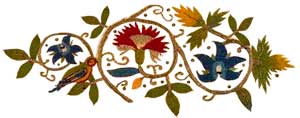
The article by Sarah Ruhl in the New York Times, “Broadway Is Closed. Write Poems Instead: When theaters shuttered, Shakespeare turned to poetry. ” (NYT, March 13, 2020) connects the current closure of Broadway theatres to the closures in Shakespeare’s London during plague time. https://www.nytimes.com/2020/03/13/opinion/broadway-coronavirus.html
This happened any time the death count per week reached 40. The closure in 1592-93 had a big impact on Shakespeare’s fledgling theatrical career. Theatres were closed again in 1603, also postponing scheduled coronation of James VI of Scotland as Queen Elizabeth’s successor, King James I. (Though King James so loved theatre that he named Shakespeare’s company The King’s Men three months before his official coronation.)
During plague closures, London acting companies could go on the road, but this was chancy. Unless a nobleman, as with Pembroke’s men or Leicester’s Men (and my fictional Lord North’s Men in The Secret Player) sponsored a company, the players could be arrested as vagrants. But even traveling under an aristocrat’s name, troupes could be turned away from villages as potential carriers.
At the time no one knew the cause of bubonic plague—fleas carried by rats—and the recommended herbal treatments proved useless. What Elizabethans did know, however: crowded conditions contributed to its spread. London houses where even one resident suffered would be closed up, the door marked with a red cross, all family members entrapped. Each night wagons carted the dead to mass graves at Finsbury Fields. Some of those infected survived, but much of London’s population was wiped out during an epidemic.
This dreaded disease wasn’t limited to London; it reached its fatal hand to William Shakespeare’s family in Stratford-upon-Avon over the years. He lost three young sisters, two as babies and one seven years old to plague, his brother Edward (in London) at age 27, and his beloved son Hamnet at age 11. What if William himself had been taken at an early age? By luck and precautions, he survived.
Long ago in Muriel Bradbrook’s study of Shakespeare, I encountered a fanciful idea: what if a few poets and playwrights fled plague-ridden London for a country house-party? This inspired a section of The Secret Player. It’s risky adventure for the protagonist, Sander Cooke, boy actor, as the manor house chosen is near Saffron Walden, where she was born as Kate Collins. Audley Inn (Audley End today) was the estate of Sir Thomas Howard, the local lord and a friend of Christopher Marlowe, who secures the invitation for himself, William Shakespeare, the company’s clown Will Kemp, Thomas Nashe, Sander and her fellow apprentice Jack Wilson.
Perhaps Sander will run into someone she knows who’ll recognize her under. Perhaps in such close quarters, her secret will be difficult to keep from her fellow players. Yet she longs to see her brother Johnny and her grandmother, who raised the two of them after their mother died birthing Johnny. How are Gran and Johnny faring since she fled an unwanted marriage in Saffron Walden—with their help? What’s become of her father, a glovemaker overly given to drink? Indeed, what became of her would-be groom?
Tom Pope, apprentice master to Sander Cooke and Jack Wilson. intends to stay in London, as his house is in a less crowded part of Southwark, so the two of them join Kit Marlowe and friends at Audley Inn for a week’s house party.
As Ruhl points out, when Shakespeare had no access to public playhouses for his work, he turned to poetry. At Audley Inn, Marlowe, Shakespeare and Tom Nashe conduct a battle of the poets. Ferdinando Stanley, Lord Strange, the patron at the time of Shakespeare’s company, will be the judge—which adds further complications to the house party.
As the poets work on their pieces for the competition: Marlowe on ‘Hero and Leander,’ Shakespeare on ‘Venus and Adonis,’ and Nashe on ‘In Plague Time,’ Kemp and the two player boys must amuse themselves.
Excerpts from The Secret Player, ©Jinny Webber, to follow.

Fascinating and such fun to read. I love that links are included for previous posts too for easy access. Just read that the plague though started by fleas, its spread was so virulent and quick, it was likely spread by airborne pathogens transmitted by coughing and in close proximity. I enjoy your historical investigations and imaginative creations!
Thank you!! Times of disquiet and incertitude breed wonderful outlets in art!!
Very intriguing how something that happened in the 1500s is seemingly happening again now! I liked the details about Shakespeare’s family, most people would never know that! And the house party description in your book was a great idea as well 🙂
Read with grim interest.
Hope our great poets and playwrights of today are similarly spared. I love your creativity!